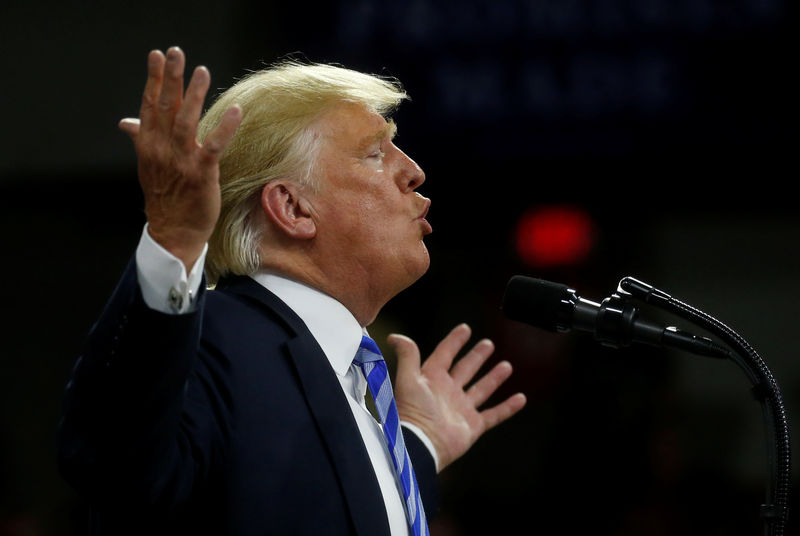(Bloomberg) -- President Donald Trump’s proposals to cushion the U.S. economy from the coronavirus’s shock are likely to provide some relief but face an uphill battle to stave off the risk of the nation’s first recession in more than a decade.
Trump said Wednesday in an address from the Oval Office that he’s seeking cuts to payroll taxes by an unspecified amount, $50 billion in low-interest loans from the Small Business Administration, deferrals of income-tax payments for some and unspecified relief for workers forced to stay home for virus-related reasons. He also announced a one-month ban on most travel from Europe to the U.S. -- excluding the U.K. -- which is aimed at stemming the virus’s spread though that will further deepen the travel industry’s woes.
The series of proposed measures didn’t go far enough to bolster confidence or the markets in the hours after the speech, though some saw it as a good first step.
“The president’s proposals fall well short of what will be needed to avoid an economic downturn,” said Mark Zandi, chief economist with Moody’s Analytics. “And on net, the proposals he put forward today are probably a wash at best. You have the benefit of some of the tax proposals washed out by the negative of the travel ban with Europe.”
Futures on the S&P 500 index of U.S. stocks steadily deteriorated as details of Trump’s plan leaked out over the dinnertime hours. Down about 0.8% when his speech began, the loss extended to 2% by the time the president finished speaking, and reached more than 4% later.
Trump caused confusion by appearing to say that the European travel ban would also apply to imported cargo -- a move that would cause huge disruption to trade and supply chains -- before Trump clarified in a tweet that the ban wouldn’t apply to goods.
Imposing a travel restriction of Europeans entering the U.S. is likely to throw business travel and tourism into disarray, and also force many airliners and hotels to offer further refunds or credits for canceled trips, as many have done so far.
“It’s a pretty aggressive and appropriate set of policy proposals,” though the question is would it be approved by Congress, said Mickey Levy, Berenberg’s chief economist for the Americas and Asia. “It all depends on how long this virus lasts and how much it disrupts business.”
Quantifying the impact on growth from the president’s proposals as outlined Wednesday is likely tricky because of the lack of details and uncertainty over negotiations with Congress.
“I think that small business loans and tax holiday for impacted industries are very important,” said Steve Chiavarone, a portfolio manager with Federated Investors. “The key thing now is that we have clear momentum towards a fiscal response.”
Treasury Secretary Steven Mnuchin estimated at a House hearing Wednesday that delaying the tax-filing deadline would inject about $200 billion of liquidity into the economy. Business and individual taxpayers can already get automatic six-month extensions to file their tax returns, but they have to pay by the April 15 deadline or face interest and penalties on the late payments. Extending the due date is akin of the government extending those taxpayers an interest-free loan for three months.
Trump has also repeatedly mentioned his desire for a payroll tax cut to soften the economic fallout and market plunge. One of the president’s top advisers said they may propose suspending the payroll tax entirely -- a costly move, since the Congressional Budget Office estimates payroll taxes would bring in $1.3 trillion over the 2020 fiscal year.
